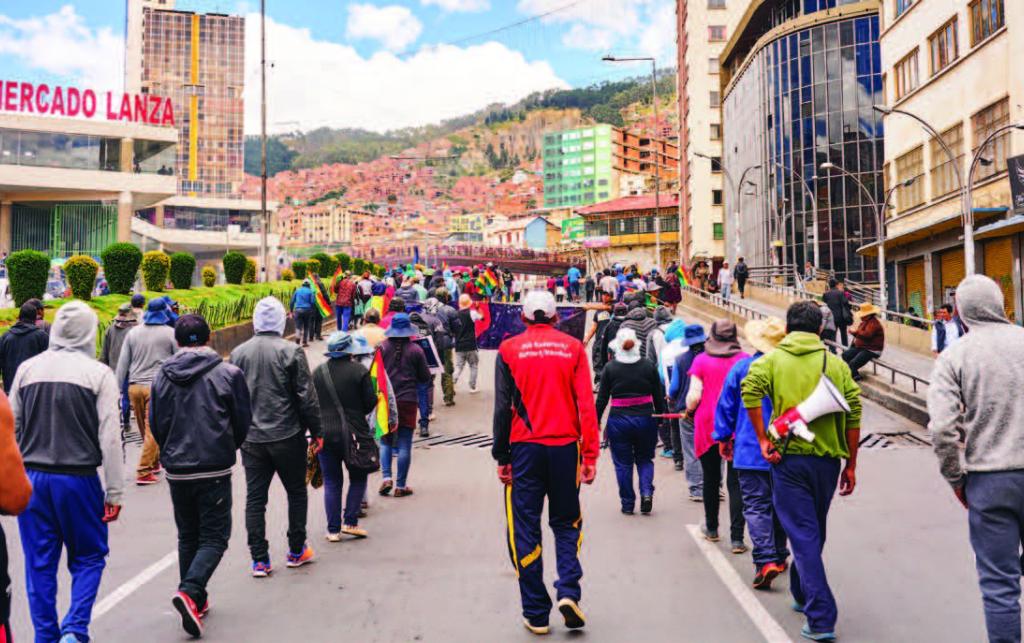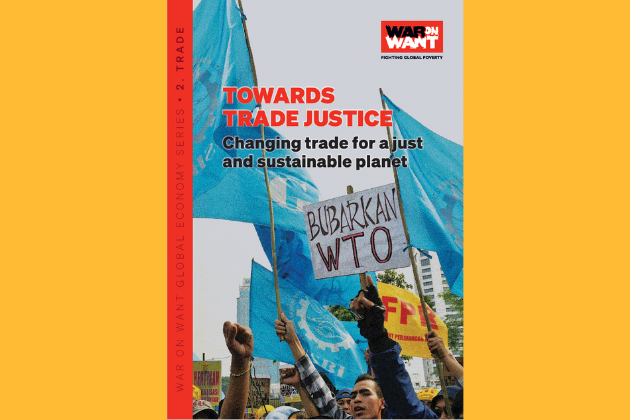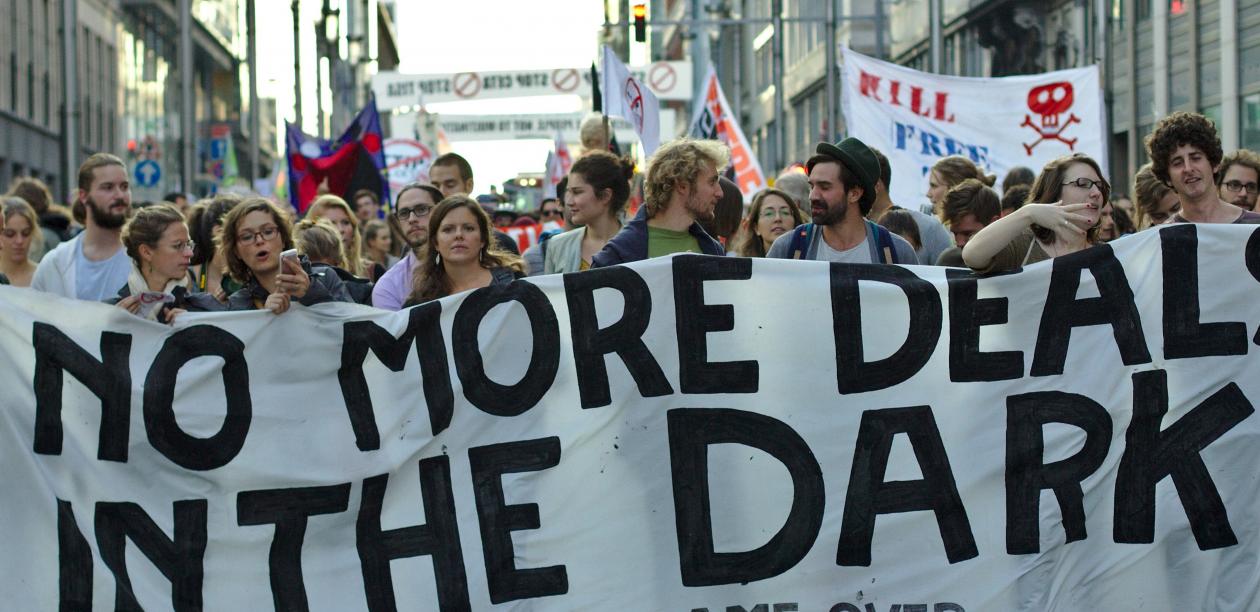Towards trade justice: Changing trade for a just and sustainable planet

We must stop trade rules from facilitating wealth extraction from the Global South, and from delaying and preventing a just transition to a green and equitable economy which guarantees everyone the right to a dignified life.
This will mean abandoning or strictly circumscribing trade deals, revising or abolishing treaties, investment agreements and institutions that entrench corporate power and the domination of the Global South by the Global North. We must remove from trade rules: Investor State Dispute Settlement (ISDS) mechanisms; intellectual property rights for corporations, and rules that restrict policy space and prevent the transition to an economically and environmentally just future.

Why trade rules are one of the key sites for change
Colonial Rules: Trade rules lock the Global South into underdevelopment through exploitative economic relationships with the Global North. Trade rules are one of the ways through which colonial expropriation of the labour and resources of the Global South by the Global North has been legitimised and reproduced. World Trade Organisation (WTO) rules on agriculture, for example, enabled countries in the Global North to subsidise their farmers heavily, while barring Global South countries from doing the same, but opening their markets to competition, decimating the livelihoods of small-scale farmers in the Global South.
A system of quotas and ‘tariff escalation’ (meaning that industrialised countries impose no duties on the import of raw materials like cocoa beans, but high tariffs on processed cocoa products, like powder or paste) pushed Global South countries to ‘specialise’ in exporting cheap, unprocessed raw materials and penalised investments in value added processing. Trade deals have also destroyed infant industries in parts of the Global South, by exposing them to global markets too early. Consequently, production and profit are often controlled and amassed in the Global North. Digital trade rules being embedded into trade deals now seek to bring this extractive, colonial dynamic into the 21st century, and the push for these rules reflect the growing power that tech giants have over our economies.
Corporate Power: Trade deals have been used to expand corporate power and exacerbate inequality. Trade deals and agreements under the WTO are binding and enforceable, in a way that other agreements (like human rights and climate and biodiversity treaties) usually aren’t. This has made trade policy space attractive for corporations who want to cement and expand their power. Corporate lobbyists have pushed for the inclusion of rules in trade deals that would allow them to influence government policy, for example through ‘regulatory cooperation’ measures. Additionally, an investor protection mechanism called ISDS3 that protects corporate profits and Trade deals have expanded the privatisation of public services, and undermined standards and regulations, which has all served to enrich corporations at the cost of our collective wellbeing. undermines state sovereignty over policy has been included into thousands of trade deals and is being used by corporations to prize billions from the public purse.
Trade deals have been used to advance the intellectual property rights of corporations. We have seen this around the production of medicines and vaccines to devastating effect, through the use of the ‘TRIPS’4 agreement to prevent poorer countries from producing COVID-19 vaccines, tests and treatments, which could have potentially saved millions of lives throughout the pandemic.
Free trade vs the climate: Trade aimed at ever increasing levels of globalisation locks in high emissions and consumption patterns inconsistent with climate justice. The dangerous ideology underpinning free trade is that economic growth borne of infinite material extraction is possible and desirable on a planet where resources are finite. As a result we are swiftly transgressing the earth’s planetary boundaries. WTO rules say that countries must be able to prove that any safety and environmental standards are the ‘least trade restrictive’ way to achieve their aim, automatically elevating trade liberalisation above any other priorities that countries individually or collectively may have.
Trade liberalisation encourages production and distribution through extensive and growing networks of supply chains. This pushes countries into carbon intensive production and agriculture, destroys the environments and lives of people living in sites of intensive extraction, and drives demand for new fossil fuels. It has also facilitated high carbon consumption in the Global North, while undermining living standards in the Global South, contributing to a situation in which the wealthiest 10% of the global population has contributed almost half of all greenhouse gas emissions since 1990.5
Trade rules have been utilised to water down and eliminate social and environmental safeguards and create major barriers to effective climate action. ISDS clauses in trade deals are increasingly being used by fossil fuel corporations to delay and reverse climate policy and force governments to hand over huge sums that could otherwise be spent on public services. Trade deals also often bar countries from benefiting from the transfer of technologies needed for climate crisis mitigation, can place restrictions on governments from subsidising green investments or from using locally produced materials lest these ‘restrict’ trade. Transforming trade is a necessary part of a fundamental reordering of our economic system, its priorities and in whose interests it works.
Find out more by downloading the report below.

